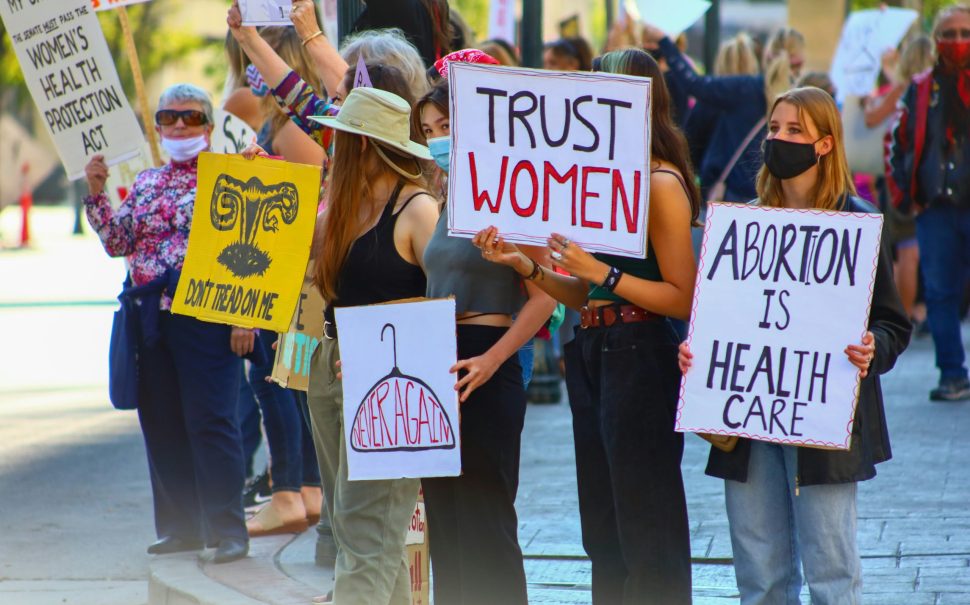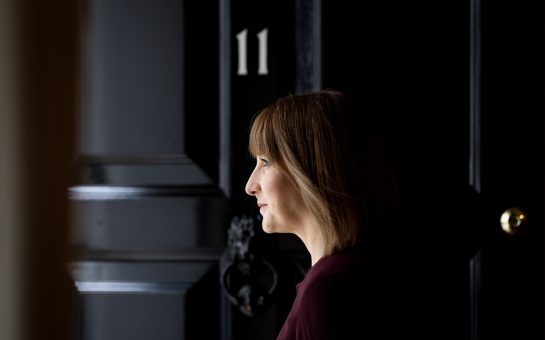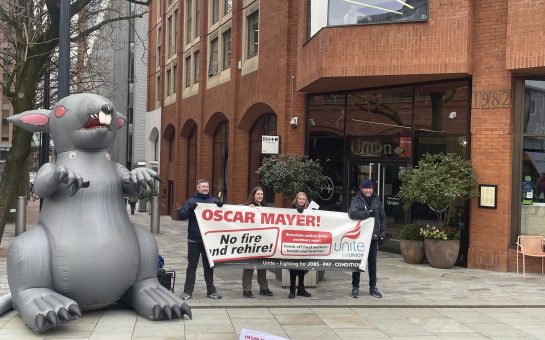Abortion is back in the news and no, not in the United States.
Abortion law in England and Wales has appeared in the news in relation to the trial of Nicola Packer, recently published police guidance, and controversial remarks by Reform leader Nigel Farage.
Now, the decriminalisation of abortion is on the table this month, with two amendments put forward by Labour MPs set to be voted on in a free vote in the Commons next week.
MPs debated the topic of decriminalisation and further discussed the amendments on June 2nd after an e-petition calling for it exceeded the required 100,000 signatures.
Will 2025 be the year that abortion is decriminalised across the whole UK?
What is the current law on abortion in the UK?
Women across the UK, except Northern Ireland, have been able to access abortions since the Abortion Act 1967 but only under certain circumstances.
Under current law, abortions must be signed off by two doctors and must take place in a hospital or premises approved by the Secretary of State for Health.
Abortions can take place in the first 24 weeks in England, Scotland and Wales but are only allowed after 24 weeks if the woman’s life is in danger, there is a severe fetal abnormality or the woman is at risk of grave physical and mental injury.
There have been several amendments to abortion law since the 1967 Act was passed.
Initially abortions were permitted up until 28 weeks but it was reduced to 24 in 1990.
In 2018, the law was changed so women having a medical abortion in the first ten weeks of pregnancy could take the second of two misoprostol pills at home rather than at a clinic.
During the pandemic, temporary measures were brought in so women could take both pills at home. This was made a permanent amendment in 2022.
Abortion was made legal in Northern Ireland in 2019 with abortions allowed up to 12 weeks for any reason.
How many abortions happen in the UK?
Data about abortions is published by the Department of Health and Social Care. The latest available data published the 2022 statistics.
The Department of Health and Social Care recorded 252,122 legal abortions in 2022 with 99.7% of them in England and Wales. This figure is an increase of 17.3% from 2021. The rate of abortions per 1,000 women in 2022 was 21.1 – the highest rate recorded.
But why has the number of abortions increased? The cost of living and access to contraception have been cited as reasons.
A survey by the British Pregnancy Advisory Service of over 1300 women identified that the cost of living and financial factors partly or majorly affected the decision to end a pregnancy for 57% of women. Delays to accessing contraception also led to 36% of the women ending an unwanted pregnancy.
The pie chart above shows the breakdown of abortions in 2022 in England and Wales by gestation weeks which shows that the majority (81%) of abortions took place in the first eight weeks. Only 260 abortions (8%) took place after the 24 week cut-off meaning that these abortions were due to a severe fetal abnormality or the woman’s life or health was in danger.
With thousands of abortions happening each year, how can it still be a criminal offence?
Abortion outside of the permitted circumstances is illegal under the Offences Against the Person Act 1861 and Infant Life (Preservation) Act 1929.
Last month, the trial of Nicola Packer, 45, hit headlines as prosecutors alleged Ms Packer knew she was over the 10-week limit when she took abortion pills at home during a coronavirus lockdown in 2020 which she denied.
A secret recording of a 2020 meeting between healthcare professions and Metropolitan Police officers shows that the Met’s child abuse investigation lead was uncomfortable with Nicola’s arrest: “It’s not a comfortable area for police to be operating in… any criminalisation around abortions.”
The Royal College of Obstetricians and Gynaecologists (RCOG) criticised the trial and said that it demonstrated “just how outdated and harmful” current abortion law was and the need for reform.
The RCOG has joined with around 30 other organisations such as the Royal College of Nursing, Humanists UK and the Center for Reproductive Rights to call on the government to protect women’s rights to abortion without threat of prosecution.
Guidance from the National Police Chiefs’ Council (NPCC) sparked concern earlier this year as it broadened the police’s investigative scope in cases concerning “child death” to determine whether it was a miscarriage or an unlawful termination.
The updated guidance instructs police to determine intent by accessing digital communications, data from fertility or period tracking apps, medical records and internet search histories. The guidance notes that whilst consent to access medical records is preferable, the police can access it without consent.
BPAS, one of the UK’s main abortion providers, told the BBC that it has received over two dozen police requests for medical records of women who have enquired about an abortion.
Dr Ranee Thakar, President of the RCOG, said: “The new National Police Chiefs’ Council guidance is truly shocking to read. Women in these circumstances have a right to compassionate care and to have their dignity and privacy respected, not to have their homes, phones, computers and health apps searched, or be arrested and interrogated.
“Parliamentarians now have an unmissable opportunity to decriminalise abortion, to ensure women can access abortion safely, confidentially and free from the threat of investigation and prosecution.”
What amendments have been proposed?
Two amendments have been tabled by Labour MPs for the Crime and Policing Bill.
Stella Creasy’s NC20 amendment would make accessing abortion a human right and would decriminalise abortion up to the 24 week limit. The amendment would also ensure that late-term abortions would not result in prison sentences.
Tonia Antoniazzi has submitted the NC1 amendment which seeks to decriminalise abortion at any stage by a woman acting in relation to her own pregnancy but would retain the existing abortion law. This more cautious approach is backed by BPAS.
Speaking to the Guardian, Creasy said: “Other countries have enshrined a human right to access abortion – doing that here and writing this right into law for the first time ever could help prevent any rollback in rights and provide a future for ensuring everyone can access a safe and legal abortion if they choose to do.”
Tony Vaughan, Labour MP for Folkestone and Hythe, spoke on the issue during the June 2 debate: “Criminalisation involves traumatisation from the moment of investigation to charge, arrest and all the way through the system.
“The time has come to abandon these outdated practices. I struggle to see how it can be a good use of the scarce resources in our criminal justice system to prosecute and imprison women in these situations. Our laws cannot be fixed relics of the past, but must reflect social attitudes and societal norms. “
Vaughan referred to a 2023 YouGov poll of 2,098 adults, which found that 52% of respondents believed that women should not face prosecution for having an abortion, while only 21% of respondents believed that prosecution was appropriate.
The same poll found that in regards to abortion over 24 weeks, 17% believe that abortions should be accessible to women for any reason, whereas nearly half (45%) believe it should be available when there is a risk to the women’s health or disability.
The Times has reported that a YouGov poll of over 100 MPs has found that 70% agreed women should not be liable for prison sentences if they have abortions outside the set rules. The proportion of Labour MPs in the poll who support it is 81%.
However, not everyone agrees with the decriminalisation campaign.
A spokesperson from the Society for the Protection of Unborn Children (SPUC) said: “Amendments being tabled to the Government’s Crime and Policing Bill would completely decriminalise abortion and lead to a massive expansion of abortions while allowing abortion up to birth for any reason. This is a horrific prospect which SPUC are urging MP’s not to support.
“These changes would also allow sex selection which in other countries, like China, has resulted in the mass killing of baby girls.
“Crucially, none of this is supported by the public. Polling shows that only 1% of people support abortion up to birth.”
The statistic referred to appears to be from a 2017 Comres poll.
If you have been affected by any of the issues discussed in this article, seek support here.
Featured image credit: Manny Bercerra on Unsplash




